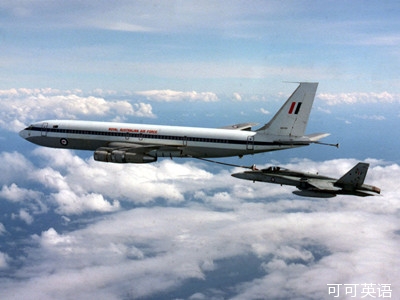Labour relations in America
勞資關系在美國
Boeing bullied
波音受欺凌
Unions have the government in their corner
工會把政府拉入自己的陣營
AFTER several disruptive and costly strikes in a part of the country where unions are strong, a company opens a new plant in a region where they are weak.
在國內一個工會勢力很強的地方,在幾次極具破壞力且耗資巨大的罷工之后,某公司在工會勢力較弱的地方開辦了一家新廠。
The union complains to a government agency, which accuses the company of illegal retaliation against the union.
工會向一個政府部門投訴,該部門狀告公司對工會實行非法報復。
It seeks to force the company to relocate its new plant back in the heavily unionised region.
他們爭取讓公司將新工廠搬回工會勢力強盛的地區。
Is this France, or Venezuela?
這是在法國,或是在委內瑞拉嗎?
Neither; it is America.
都不是;這是在美國。
 The firm in question is Boeing, an aircraft maker.
The firm in question is Boeing, an aircraft maker.
上述公司是飛機制造廠商波音公司。
The strikes occurred in Washington state, where closed-shop rules mean that if a workforce opts to unionize,
罷工發生在華盛頓州,那里的統包規則意味著,如果某公司的全體職工決定成立工會,
all employees must join the union as a condition of employment.
則所有職工都必須加入該工會,這是就業條件之一。
The new plant that America's National Labour Relations Board saw as grounds to charge the firm with retaliation is in South Carolina,
美國國家勞工關系局作為起訴公司報復罪的根據的新工廠在南卡羅來納州,
where right-to-work rules mean that no worker can be forced to join a union.
那里的就業權規則意味著,沒有任何工人會被迫加入工會。
The case has often been cited as evidence that President Barack Obama is hostile to business.
本案經常被人援引,作為巴拉克?奧巴馬對企業界抱有敵意的例子。
So businessfolk should have cheered when, on December 9th, the NLRB decided to drop its case against Boeing.
12月9 日,NLRB決定對波音撤訴,企業界人士應該為此歡呼。
But few did.
但幾乎無人這樣做。
For the NLRB's decision reflects a victory not for common sense, but for strong-arm tactics.
因為NLRB的決定并非常識的勝利,它反映了強權高壓的手段。
It seems that the NLRB, a legacy of President Franklin Roosevelt's New Deal, chose to drop the case only after it was asked to by representatives of the International Association of Machinists, the main Boeing union.
作為弗蘭克林·羅斯福總統新政的遺產,NLRB似乎只是在波音公司的主要工會,國際機械師協會的代表請他們這樣做之后才放棄此案的。
The union told the government agency that it had just struck a lucrative deal with Boeing covering its workers in Washington state.
該工會告知政府機構,它已與波音公司達成了一項很合算的協議,該協議與波音公司在華盛頓州的全體工人有關。
With the deal done, the union no longer needed the government to hold a helpful gun to Boeing's head.
協議一經達成,工會也就不再需要政府繼續幫他們強力威脅波音了。
Boeing declared victory, but fooled no one.
波音宣布自己獲勝,但這騙不過任何人。
For this sets a precedent: the federal government's supposedly neutral representatives will threaten a company with serious harm if it doesn't make concessions to unions.
因為此案開創了一個先例:如果某公司不對工會做出讓步,本應中立的聯邦政府代表就會對公司做出具有重大傷害性的威脅。
That gives firms a powerful incentive never to set foot in union-friendly states in the first place.
這讓公司受到強大的誘惑,從開始就絕不涉足工會強勢的州。
Many will doubtless build their factories abroad, where the NLRB's bureaucratic bruisers can't threaten them.
許多公司無疑會在國外建廠,NLRB的官僚好斗者們無法在那里威脅它們。











